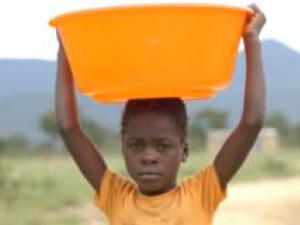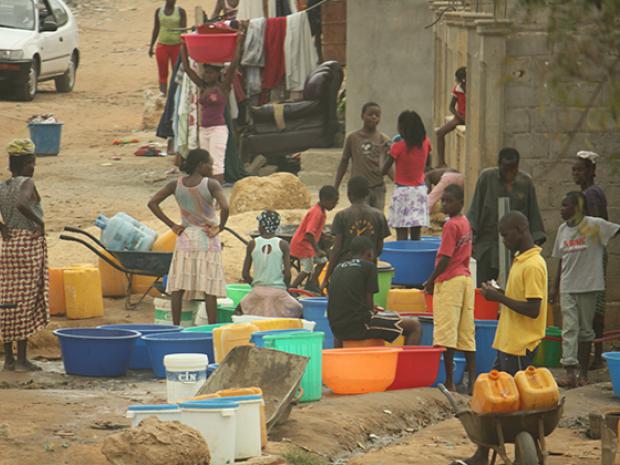Angola
Introduction
Angola has made important progresses in the last decade with a high growth rate. Progress in human development is however limited. The cooperation between European Union and Angola, defined in the NIP (click here for the full document) will be focus on three sectors: agriculture sector, water and education. The programme is in line with the national strategy “Angola 2025” and the National Development Plan 2013-2017.
Focus Sectors budget
| Technical and Vocational Education and Training and Higher Education | EUR 45 million | 21.4% |
| Sustainable Agriculture | EUR 84 million | 40% |
| Water and Sanitation | EUR 65 million | 31% |
| Measures in favour of civil society | EUR 6 million | 2.8% |
| Support measures | EUR 10 million | 4.8% |
| TOTAL | EUR 210 million | 100% |
Water
Overall objectives
The Water and Sanitation sector has as the overall objective to contribute to poverty alleviation and

source: EC
environmental preservation, by increasing access to potable water, sanitation and improved hygiene practices.
Country Context
The majority of the Angolan population have inadequate and poor access to potable water and sanitation services. The IBEP data shows that 58% of the population don´t have access to drinking water, this number rises to 78% in rural areas. Moreover, diarrhea is still one of the major causes of child mortality in Angola, and the rate of open defecation (OD) remains high (34% in urban area and 64 % in rural areas).
The goals and commitments for sanitation contained in international agreements are not yet fully integrated into national priorities for social sector development. The Government has however made major investments in WS, particularly in the context of the 'Water for All' program (ongoing since 2007) with a financial envelope of over USD 650 million, aiming to achieve a water supply coverage rate in 2017 of 100% in urban areas and 80 % in rural/peri-urban areas.
Specific objectives and the main expected results
SO1 - Increase access to potable water, sanitation and improved hygiene practices in periurban and rural areas
- R.1. Access to potable water improved, incidence of open defecation reduced and improved hygiene practices adopted in rural and peri-urban areas;
-
R.2. Water quality control laboratories equipped and control plans and monitoring systems set-up and running, taking advantage of sustainable technological and innovative solutions;
Image
source: EC
- R.3. Vulnerable ecosystems protected from inappropriate water management and sanitation practices;
SO2 - Strengthen and modernize the institutional and legal frameworks with a view to a more efficient and sustainable management of water supply and sanitation systems
- R.1. National sectorial policies, strategies, regulations and action plans, including research and innovations components, finalized, financially and politically supported and enforced;
- R.2. Databases and information systems set-up, updated and fully functioning;
- R.3. New decentralized Water and Sanitation (WS) services' managing bodies created and/or restructured.
SO3 - Develop specific skills to coordinate the various aspects of potable water supply and sanitation services management
- R.1. The Water Training Centre currently supported by EU funds (10th EDF) is able to timely provide the sector with the required skilled workers, both in number and in quality;
- R.2. Rural communities are aware, trained and engaged in the sustainable operation and maintenance of sanitation and water supply systems.
Watch the video below to find out more on the past projects in Angola.
